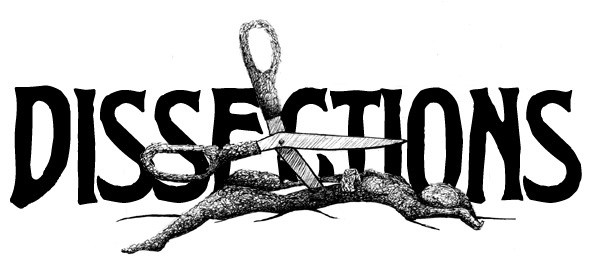[an error occurred while processing this directive]




Artwork: Longing by Kathy Davis Patterson
Chelsea Quinn Yarbro
(ICFA conference, March 2009, Orlando, Florida)
Interviewed by Gina Wisker
Interviewer (I): OK Chelsea Quinn Yarbro, thank you very much for talking to me.
Respondent (R): My pleasure.
I: Now, I wanted to ask you – why Saint-Germain, why vampires and why so much history? What set you off on this and kept you on it?
R: Well, I like vampires and I think a lot of people like vampires. But I mean, genuinely enjoy them in a way that they might not, say, a serial killer or someone who behaved similarly but without the grace and style. And even when I was a little kid I thought they were kind of nifty – and I wasn’t the only one – so I was kind of drawn to the idea to begin with, and having studied a lot of folklore – they are very, very interesting critters. And the more writing I did the more interested I was in doing the things that engage my mind, like any other good kind of fictionalist – you really want to talk about the things that you’re interested in because otherwise it will be dull and boring. It may still be but you lessen the opportunity for that to happen. And so when I started going into writing seriously and started writing things like stories and plays when I was a teenager, this was an area that really appealed to me. And when I switched over to fictiony prose rather than plays it made it easier to do things like vampires because they’re a lot trickier to make work in real venues. You have to go by heavy stereotypes or people won’t accept them.
I: Whereas you can suggest what you write in fiction?
R: Yes.
I: I saw your sheet earlier with all the dates, times and places which remind you of where he’s been and what he’s done and what he remembers – but I think you’re unusual in doing historical sagas in a sense.
R: I think so. I’m pretty sure that in terms of mass market fiction I’m the first one. Good, bad or indifferent – I was doing it before it seemed to be something anyone could do. In fact when I first started trying to sell Hotel Transylvania – way back when – I was told that you couldn’t do a positive historical vampire – and if it could be done at all, I wasn’t the one who would do it.
I: Well, I’m glad people were shutting you down at that point!
R: Well, yes, it was very ignorant. But the trouble is – when you get a character like that going off in your head, you gotta write about them because otherwise they won’t shut up!
I: One more point about the history thing – does the fact that he’s a vampire therefore last forever?
R: Oh, virtually forever....
I: Virtually forever – doesn’t that open up all historical periods, future, past....
R: Well, he said he was going to live over 4000 years ago. The real man claimed to have been almost 4000 years old back in 1743. So basically everything that he said he had done in history I kept as being true. Do I think he really did it? No, of course not. But he was a very good story teller, and since he was so obliging as to leave this little rubble heap of evidence, I was happy to mine it, and I’ve gone well beyond anything that was reported that he said by now....
I: OK, so there was a real person behind the story?
R: Oh yes....
I: And that was his name? Saint-Germain?
R: We called him Saint-Germain, yes. He was a great mystery. They never figured out who he was. He’s even got three death dates – you can choose whichever one suits your purposes.
I: So that sets you off into making it possible for him to appear to be....
R: Well, most of his life he seemed to be about 40 years old and he said that he kept his youth by drinking the elixir of life. Well...blood. For a natural vampire it’s not a very very long step. And, as I said, I take him at his word – even though I think he was fibbing – and I use that as what I was building on, and, of course, then it went moving off into other areas and realms. But it was still consistent with the kind of thing he was likely to do.
I: So that you’ve built up a consistent character but you’ve taken him on his word. Where’s he going to go next?
R: Well, at the moment the thing I’m working on is Bohemia in 1270. Not a time you want to be in Bohemia. Bohemia is very rich – it’s the richest country in Europe, but it’s got a war going on and of course it’s preoccupied with evil, which is a culture that’s very disturbing.
I: But you immerse yourself in it in order to write a book?
R: Oh yes, I figure I’m glad to know enough about it to move someone who is alien to it, through it.
I: The one alien to it is the reader?
R: Well, tangentially, yes. But in terms of structure, in terms of the story, it’s Saint-Germain.
I: So you’re letting him through, and us through.
R: And because it isn’t his time, the trust and loyalty make him one of a kind in ever so many ways. He has to learn how to fit in, and he has to learn how to fit in very very quickly.
I: Like we have to learn how to understand?
R: Yes.
I: We also spoke a bit about characters taking you over, events taking you over – and in the writing process, I don’t know if you’d describe it as being stuck, but you can see the end, you’ve got so far, you’re not sure how to get them from here to here – what is that kind of writing process like for you?
R: Well, I usually have some idea of how I’m going to get from there to there because I outline, unlike some writers. And if you can’t outline, don’t outline. I do it to make sure I don’t go galloping over hill and dale in all directions, because I’d write much longer books. And I’m not always sure – I know the place we’re going, I know how we’re going to get there – I’m not always sure about the way that we’re going to get there. I have an itinerary, they just haven’t told me what kind of mode of transportation I’m going to be using....
I: Who is ‘they’?
R: Well, the characters....
I: They have a life of their own?
R: Absolutely. If they don’t become real to me they’ll never become real to a reader. I have to see and hear and know them. Or what’s going to be on the page is going to be – at best – cardboard.
I: So they take over the reins of the thing once you’ve got the structure in place, and they gallop you towards the end of it when they’re ready? Have you ever been stuck for a reasonable amount of time while you’re waiting for them to finish it off?
R: Luckily not for more than say a week. But I certainly have been suddenly ground to a halt for no reason I could determine. And had to wait for somebody to please tell me what’s going on. I’m a stranger here myself, so tell me what your problems are. And most of the time it’s something structural that I’ve screwed up on. And I learned a long time ago, if you argue with a character, the character is always right and you’re always wrong.
I: You have to wait for them to reveal it?
R: And you have to trust them to know what’s going on better than you do.
I: So, ‘something structural’ – typically what might that be? You’ve got them to the wrong bit; you’ve not left a trail?
R: Usually I haven’t set it up right. I’m asking them to jump into space with no net to land in essentially. I haven’t provided the information that makes this action not only expected and reasonable but part of what’s going on.
I: So how would you nudge yourself out of this short stuck writing spot?
R: Sometimes I go off and write something else. That’s usually pretty good at shaking up the old cells and the other thing is I will watch movies I don’t like.
I: Right. Why?
R: Because in the process of getting annoyed at them I can usually find what I did wrong. One of the reasons I don’t like those kinds of movies is most of them don’t set things up....
I: So you might be able to suddenly spot what it is and...
R: Right, by not looking at it where I did it. And you go ‘Oh that’s right – I forgot to tell them all about that, stupid! I’ve got to go back and I’ve got to insert another 1000 words explaining...
I: With a back story?
R: Not necessarily a back story, sometimes just back action. Stuff that should have been in Chapter 4 and now we’re in Chapter 21, but you don’t know that there is in fact a cellar at that inn where they keep all the smuggled brandy or something like that. I forgot to tell you.
I: That will hook you in and move you on forwards?
R: Yes. All of a sudden, the fact that they don’t want to hide anybody down there because – I didn’t tell you why. So they’re acting in a baffling way – and everybody’s sitting there going ‘OK, fix this’ (laughs).
I: So you’ll find a good reason by going back into the story and putting the reason in place?
R: Yes. And as I say, there’s nothing like watching really bad movies where they don’t do this at all, where things keep popping out of the ground for no rationale whatsoever, to say ‘You know, there’s something back there. Just relax, it will come to you’ (laughs).
I: And then it comes to you?
R: Yeah. You know, sub consciousness works far better than consciousness all the time.
I: Thank you. I’m going to stop now. Thank you very much.
R: You’re welcome.